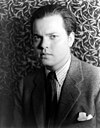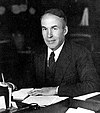List of recordings preserved in the United States National Recording Registry
From Wikipedia, the free encyclopedia
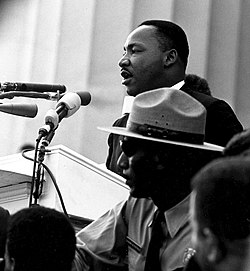
The recordings preserved in the United States National Recording Registry form a registry of recordings selected yearly by the National Recording Preservation Board for preservation in the National Recording Registry of the Library of Congress.[1]
The legislative intent of the National Recording Preservation Act of 2000 was to develop a national program to guard America's sound recording heritage. The act resulted in the formations of the National Recording Registry, The National Recording Preservation Board and a fund-raising foundation to aid their efforts.[2] The act established the Registry specifically for the purpose of maintaining and preserving sound recordings and collections of sound recordings that are culturally, historically, or aesthetically significant.[3] Beginning in 2002, the National Recording Preservation Board began selecting nominated recordings each year to be preserved. The first four yearly lists included 50 selections. However, the 2006 and 2007 lists only included 25 selections each. Thus, a total of 250 recordings have been preserved in the Registry as of 2008. Each year, open nominations are accepted until July 1 for inclusion in that year's list of selections to be announced the following spring. Thus, nominations for the 2008 list to be announced in the spring of 2009 had to be submitted by July 1, 2008 although nominations are accepted year round.[1][4]
Each of the first five yearly lists have included a few recordings that had already been selected for inclusion in the holdings of the National Archives' audiovisual collection. The National Archives maintains holdings of documents and materials created by the United States Federal government that are considered so important for legal or historical reasons that they should be preserved indefinitely.[5] Its audiovisual collection consists of film, sound recordings and videotapes.[6] The National Archives serves American democracy by safeguarding and preserving the records of American Government, ensuring continuing access to the essential documentation of the rights of American citizens and the actions of their government.[7] Thus, those recordings in the National Recording Registry that are of a political nature will tend to overlap with the audiovisual collection of the National Archives. The list shows overlapping items and whether the National Archives has an original or a copy of the recording. The recording on the list that was recorded most recently is Nirvana's album Nevermind and the oldest is Thomas Edison's exhibition recordings.
Contents |
[edit] Selection criteria
The criteria for selection are as follows:[8]
- Recordings selected for the National Recording Registry are those that are culturally, historically or aesthetically important, and/or inform or reflect life in the United States.
- For the purposes of recording selection, "sound recordings" are defined as works that result from the fixation of a series of musical, spoken, or other sounds, but not including the sound component of a moving image work, unless it is available as an autonomous sound recording or is the only extant component of the work.
- Recordings may be a single item or group of related items; published or unpublished; and may contain music, non-music, spoken word, or broadcast sound.
- Recordings will not be considered for inclusion into the National Recording Registry if no copy of the recording exists.
- No recording should be denied inclusion into the National Recording Registry because that recording has already been preserved.
- No recording is eligible for inclusion into the National Recording Registry until ten years after the recording's creation.
[edit] 2002
In January 2003, the following 50 selections were made by the National Recording Preservation Board.[9]



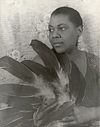

[edit] 2003
In March 2004, the following 50 selections were made by the National Recording Preservation Board.[11]


[edit] 2004
In April 2005, the following 50 selections were made by the National Recording Preservation Board.[12]

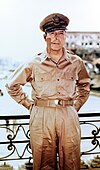

[edit] 2005
In April 2006, the following 50 selections were made by the National Recording Preservation Board.[13]



| Recording or collection | Performer | Year | National Archives |
|---|---|---|---|
| "Canzone del Porter" from Martha (von Flotow) |
Edouard de Reszke | 1903 | |
| "Listen to the Lambs" | Hampton Quartette; recorded by Natalie Curtis Burlin |
1917 | |
| "Over There" | Nora Bayes | 1917 | |
| "Crazy Blues" | Mamie Smith | 1920 | |
| "My Man" and "Second Hand Rose" | Fanny Brice | 1921 | |
| "Ory’s Creole Trombone" | Kid Ory | June 1922 | |
| Inauguration Ceremony | Calvin Coolidge | March 4, 1925 | |
| "Tanec pid werbamy/ Dance Under the Willows" Ukrainian violin solo with cymbaly, bass and sleigh bells |
Pawlo Humeniuk | 1926 | |
| "Singin’ the Blues" | Frankie Trumbauer and his Orchestra with Bix Beiderbecke |
1927 | |
| First official transatlantic telephone conversation |
W.S. Gifford and Sir Evelyn P. Murray | January 7, 1927 | original |
| "El Manisero" ("The Peanut Vendor") | Rita Montaner, vocal with orchestra Don Azpiazu and his Havana Casino orchestra |
1927 1930 |
|
| Light's Golden Jubilee Celebration | October 21, 1929 | copy | |
| Beethoven’s Egmont Overture, Op. 84, | Modesto High School Band | 1930 | |
| Show Boat | Helen Morgan, Paul Robeson, James Melton and others; Victor Young, conductor; Louis Alter, piano |
1932 | |
| "Wabash Cannonball" | Roy Acuff | 1936 | |
| "One O'Clock Jump" | Count Basie and his Orchestra | 1937 | |
| Archibald MacLeish's "Fall of the City" | Orson Welles, narrator, Burgess Meredith, Paul Stewart |
April 11, 1937 | copy |
| "The Adventures of Robin Hood", radio broadcast |
May 11, 1938 | ||
| Joe Louis-Max Schmeling fight, | Clem McCarthy, announcer | June 22, 1938 | |
| "John the Revelator" | Golden Gate Quartet | 1938 | |
| "Adagio for Strings", recorded broadcast |
Arturo Toscanini, conductor; NBC Symphony |
November 5, 1938 | |
| "Command Performance", show No. 21, |
Bob Hope, master of ceremonies | July 7, 1942 | copy |
| "Straighten up and Fly Right" | Nat “King” Cole | 1943 | |
| "The Fred Allen Show", recorded broadcast |
October 7, 1945 | ||
| "Jole Blon (Jolie Blonde)" | Harry Choates | 1946 | |
| "Tubby the Tuba" | Paul Tripp (words) and George Kleinsinger (music) |
1946 | |
| "Move on up a Little Higher" | Mahalia Jackson | 1948 | |
| Anthology of American Folk Music | Edited by Harry Smith | 1952 | |
| "Schooner Bradley" | Pat Bonner | 1952-60 | |
| "Damnation of Faust" | Boston Symphony Orchestra with the Harvard Glee Club and Radcliffe Choral Society |
1954 | |
| "Blueberry Hill" | Fats Domino | 1956 | |
| "Variations for Orchestra" representative of the Louisville Orchestra First Edition Recordings series |
Louisville Orchestra | 1956 | |
| "Whole Lotta Shakin' Goin On" | Jerry Lee Lewis | 1957 | |
| "That'll Be the Day" | The Crickets | 1957 | |
| “Poeme Electronique” | Edgard Varèse | 1958 | |
| Time Out | The Dave Brubeck Quartet | 1959 | |
| Studs Terkel interview with James Baldwin, representative of the Studs Terkel Collection at the Chicago History Museum (formerly the Chicago Historical Society) |
September 29, 1962 | ||
| United States Military Academy address | William Faulkner | 1962 | |
| "Dancing in the Street" | Martha and the Vandellas | 1964 | |
| Live at the Regal | B.B. King | 1965 | |
| Are You Experienced | The Jimi Hendrix Experience | 1967 | |
| We're Only in It for the Money | Frank Zappa and the Mothers of Invention | 1968 | |
| Switched-On Bach | Walter Carlos | 1968 | |
| "Oh Happy Day" | Edwin Hawkins Singers | 1969 | |
| Don't Crush That Dwarf, Hand Me the Pliers | Firesign Theatre | 1970 | |
| "The Revolution Will Not Be Televised" | Gil Scott-Heron | 1970 | |
| Will the Circle Be Unbroken | Nitty Gritty Dirt Band | 1972 | |
| The old foghorn, Kewaunee, Wisconsin | Recorded by James A. Lipsky | 1972 | |
| Songs in the Key of Life | Stevie Wonder | 1976 | |
| Daydream Nation | Sonic Youth | 1988 |
[edit] 2006
On March 6, 2007, the following 25 selections were made by the National Recording Preservation Board.[14]

| Recording or collection | Performer | Year | National Archives |
|---|---|---|---|
| "Uncle Josh and the Insurance Agent" | Cal Stewart | 1904 | |
| "Il mio tesoro" | John McCormack; orchestra conducted by Walter Rogers |
1916 | |
| National Defense Test | General John J. Pershing | September 12, 1924 | copy |
| "Black Bottom Stomp" | Jelly Roll Morton's Red Hot Peppers | 1926 | |
| "Wildwood Flower" | Carter Family | 1928 | |
| "Pony Blues" | Charley Patton | 1929 | |
| "You're the Top" | Cole Porter | 1934 | |
| "The Osage Bank Robbery", episode from The Lone Ranger |
December 17, 1937 | ||
| "Day of Infamy" speech to Congress | Franklin D. Roosevelt | December 8, 1941 | copy |
| Native Brazilian Music recorded under the supervision of Leopold Stokowski |
Pixinguinha, Donga, Cartola, Jararaca, Ratinho and José Espinguela |
1942 | |
| "Peace in the Valley" | Red Foley and the Sunshine Boys | 1951 | |
| "Polonaise in A Major" ("Polonaise militaire"), op. 40, no. 1, by Frédéric Chopin |
Artur Rubinstein | 1952 | |
| "Blue Suede Shoes" | Carl Perkins | 1955 | |
| Interviews with William "Billy" Bell (Canadian-Irish northwoods work songs) |
Recorded by Edward D. "Sandy" Ives | 1956 | |
| Howl | Allen Ginsberg | 1959 | |
| The Button-Down Mind of Bob Newhart | Bob Newhart | 1960 | |
| "Be My Baby" | The Ronettes | 1963 | |
| "We Shall Overcome" | Pete Seeger | June 8, 1963 | |
| "(I Can't Get No) Satisfaction" | The Rolling Stones | 1965 | |
| "A Change Is Gonna Come" | Sam Cooke | 1965 | |
| The Velvet Underground & Nico | The Velvet Underground | 1967 | |
| The Eighty-Six Years of Eubie Blake | Eubie Blake | 1969 | |
| Burnin' | The Wailers | 1973 | |
| Live in Japan | Sarah Vaughan | 1973 | |
| Graceland | Paul Simon | 1986 |
[edit] 2007
On May 14, 2008, the following 25 selections were made by the National Recording Preservation Board [15].[16]
| Recording or collection | Performer | Year | National Archives |
|---|---|---|---|
| The First Trans-Atlantic Broadcast | March 14, 1925 | ||
| "Allons a Lafayette" | Joe Falcon | 1928 | |
| "Casta Diva" from Bellini's Norma | Rosa Ponselle and the Metropolitan Opera Orchestra and Chorus, conducted by Giulio Setti | December 31, 1928 and January 30, 1929 | |
| "If I Could Hear My Mother Pray Again" | Thomas A. Dorsey | 1934 | |
| "Sweet Lorraine" | Art Tatum | 1940 | |
| Fibber's Closet Opens for the First Time | Fibber McGee and Molly | March 4, 1940 | |
| Wings Over Jordan radio broadcast | May 10, 1942 | ||
| Fiorello H. La Guardia reading the comics | 1945 | ||
| "Call It Stormy Monday (But Tuesday Is Just as Bad)" | T-Bone Walker | 1947 | |
| Speech at the 1948 Democratic National Convention | Harry S. Truman | July 15, 1948 | |
| The Jazz Scene | Various artists, Mercury Records, produced by Norman Granz | 1949 | |
| "It Wasn't God Who Made Honky Tonk Angels" | Kitty Wells | May 30, 1952 | |
| My Fair Lady | Original cast recording | 1956 | |
| Navajo Shootingway Ceremony Field Recordings | Recorded by David McAllester | 1957-1958 | |
| 'Freight Train' and Other North Carolina Folk Songs and Tunes | Elizabeth Cotten | 1959 | |
| United States Marine Band | Recordings for the National Cultural Center | 1963 | |
| "Oh, Pretty Woman" | Roy Orbison | 1964 | |
| "The Tracks of My Tears" | Smokey Robinson & the Miracles | 1965 | |
| You'll Sing a Song and I'll Sing a Song | Ella Jenkins | 1966 | |
| Music from the Morning of the World | Various artists, recorded by David Lewiston | 1966 | |
| For the Roses | Joni Mitchell | 1972 | |
| Head Hunters | Herbie Hancock | 1973 | |
| Ronald Reagan Radio Broadcasts | 1976-79 | ||
| The Sounds of Earth | Disc prepared for the Voyager spacecraft | 1977 | |
| Thriller | Michael Jackson | 1982 |
[edit] See also
[edit] Notes
- A The original 25 recordings from July 24, 1933 and July 28, 1934 are preserved at the Roosevelt Library in Hyde Park, New York.[17]
- B The National Recording Registry lists this as a 1965 recording, but the album was actually recorded in 1962 and released in 1963.[18]
- C The National Recording Registry lists this as a 1989 recording, but the album was actually recorded in 1989 and released in 1990.[19]
[edit] References
- ^ a b "Current Registry". The Library of Congress. 2006-11-03. http://www.loc.gov/rr/record/nrpb/nrpb-home.html. Retrieved on 2007-02-26.
- ^ "Overview". The Library of Congress. 2006-11-16. http://www.loc.gov/rr/record/nrpb/nrpb-about.html. Retrieved on 2007-02-26.
- ^ "Current Registry". The Library of Congress. 2006-11-03. http://www.loc.gov/rr/record/nrpb/nrpb-home.html. Retrieved on 2007-02-09.
- ^ ""Thriller" in the Library of Congress: 2007 National Recording Registry Announced". The Library of Congress. 2008-05-16. http://www.loc.gov/today/pr/2008/08-079.html. Retrieved on 2008-08-09.
- ^ "About the National Archives". U.S. National Archives and Records Administration. http://www.archives.gov/about/. Retrieved on March 1 2007.
- ^ "National Recording Registry Includes Two National Archives Sound Recordings". U.S. National Archives and Records Administration. http://archives.gov/press/press-releases/2007/nr07-70.html. Retrieved on March 15 2007.
- ^ "Our Mission Statement". U.S. National Archives and Records Administration. http://www.archives.gov/about/info/mission.html. Retrieved on March 1 2007.
- ^ "National Recording Registry Criteria". The Library of Congress. 2006-11-03. http://www.loc.gov/rr/record/nrpb/nrpb-nrr.html. Retrieved on 2007-02-09.
- ^ a b c "The National Recording Registry 2002". The Library of Congress. 2006-12-06. http://www.loc.gov/rr/record/nrpb/nrpb-2002reg.html. Retrieved on 2007-02-09.
- ^ "Edison cylinders chosen for National Recording Registry". Edison National Historic Site. National Park Service. 2004-12-22. http://www.nps.gov/archive/edis/pr_loc_rec_020103.htm. Retrieved on 2007-03-07.
- ^ a b c "The National Recording Registry 2003". The Library of Congress. 2006-10-25. http://www.loc.gov/rr/record/nrpb/nrpb-2003reg.html. Retrieved on 2007-02-09.
- ^ a b c "The National Recording Registry 2004". The Library of Congress. 2006-10-25. http://www.loc.gov/rr/record/nrpb/nrpb-2004reg.html. Retrieved on 2007-02-09.
- ^ "The National Recording Registry 2005". The Library of Congress. 2006-10-25. http://www.loc.gov/rr/record/nrpb/nrpb-2005reg.html. Retrieved on 2007-02-09.
- ^ "The National Recording Registry 2006". The Library of Congress. 2007-03-06. http://www.loc.gov/rr/record/nrpb/nrpb-2006reg.html. Retrieved on 2007-03-07.
- ^ Logue, Susan (15 May 2008). "Jackson, Reagan Added to National Recording Registry". VOA News (Voice of America). http://voanews.com/english/archive/2008-05/2008-05-15-voa24.cfm. Retrieved on 03 January 2009.
- ^ "The National Recording Registry 2007". The Library of Congress. 2008-05-14. http://www.loc.gov/rr/record/nrpb/nrpb-2007reg.html. Retrieved on 2008-08-09.
- ^ "National Archives Sound Recordings Named to National Recording Registry". U.S. Newswire. 2003-01-23. http://www.highbeam.com/doc/1G1-97082009.html. Retrieved on 2007-02-24.
- ^ "Live at the Apollo (Deluxe Edition)". All Media Guide. http://allmusic.com/cg/amg.dll?p=amg&sql=10:xq7ibk09sakv. Retrieved on 2007-02-27 2007.
- ^ "Fear of a Black Planet". All Media Guide. http://www.allmusic.com/cg/amg.dll?p=amg&sql=10:00qpg4sttv8z. Retrieved on 2007-02-27 2007.

